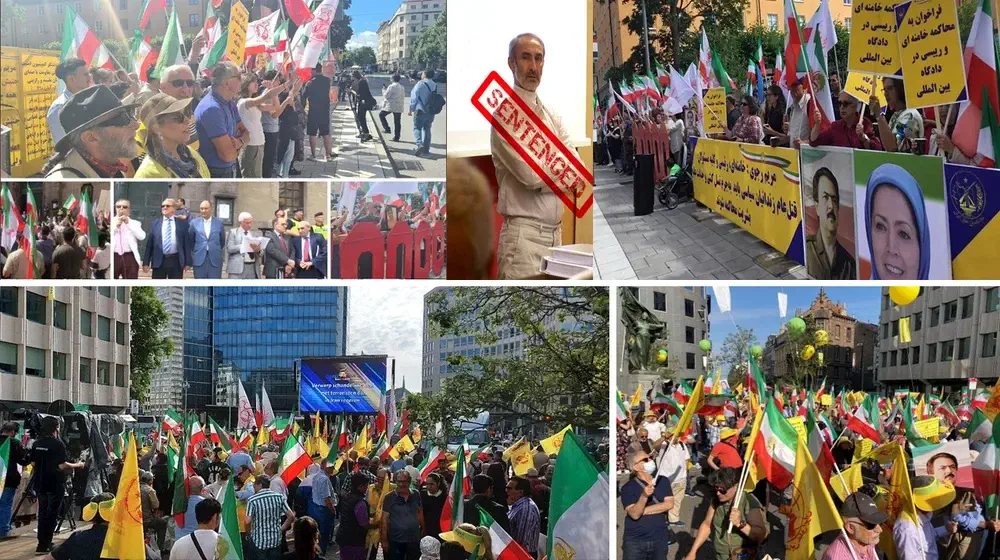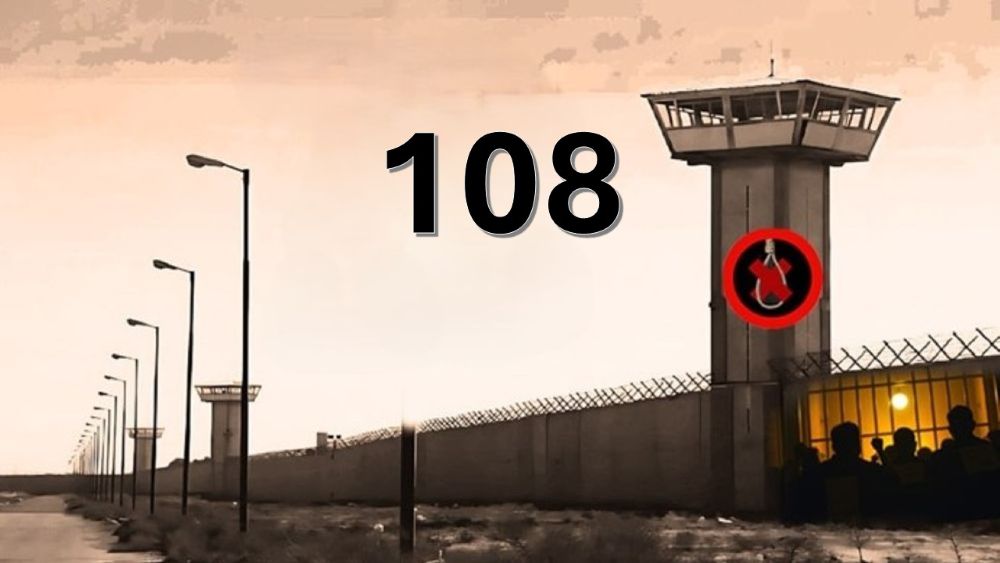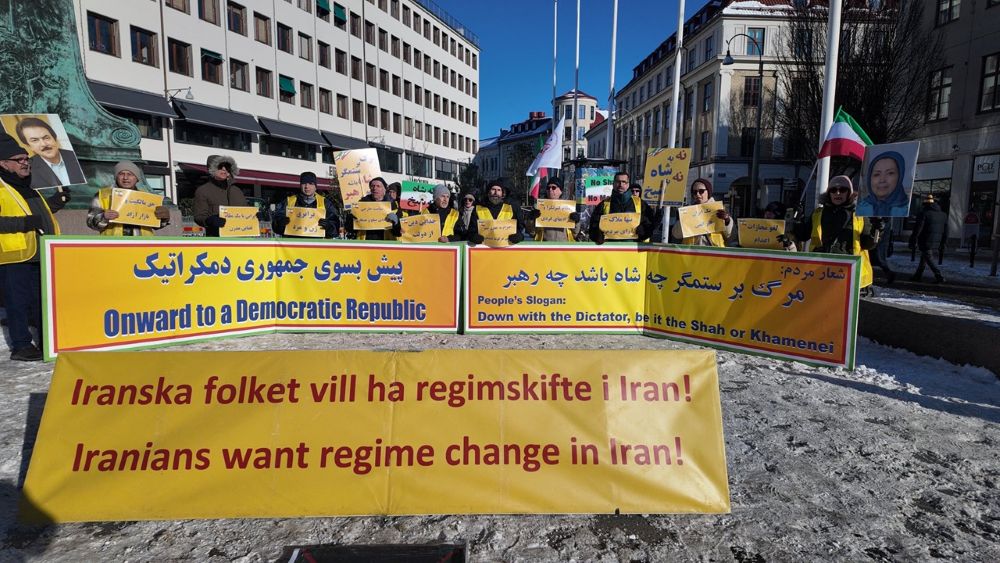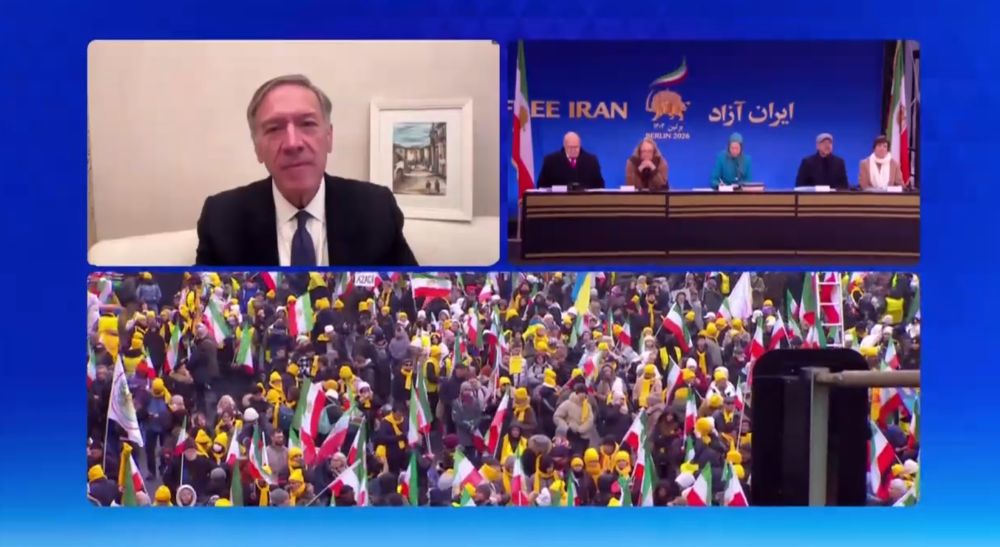
On Thursday, July 14, freedom-loving Iranians held two significant demonstrations in Brussels and Stockholm. They called on the European states to hold Tehran to account and not concede to the terrorist and mass murderer mullahs.
However, the demonstrations coincided with a historic victory for the victims of the mullahs’ human rights violations, particularly for the families of more than 30,000 political prisoners extrajudicially executed during the summer of 1988. Remarkably, most victims were affiliates of the opposition People’s Mojahedin Organization of Iran (PMOI/MEK).
On this day, Judge Thomas Sanders issued his latest verdict on the case of Hamid Noury, one of the mass executions’ perpetrators, sentencing him to life imprisonment.
#BreakingNews #Stockholm, #Sweden—Judge Sanders sentenced #1988Massacre executioner Hamid Noury to life imprisonment. pic.twitter.com/0PSVPRb54O
— Iran News Update (@IranNewsUpdate1) July 14, 2022
Mrs. Maryam Rajavi, the President-elect of the National Council of Resistance of Iran (NCRI), described the ruling as a triumph for justice. Notably, she primarily launched the “Call for Justice” movement, aiming to hold the Iranian regime to account for the massacre of political prisoners in 2016.
“The Swedish Judiciary upheld a life sentence for Hamid Noury, one of the perpetrators of genocide and crimes against humanity in the 1988 massacre,” Mrs. Rajavi stated. “I welcome the Swedish Judiciary’s ruling and reiterate that the prosecution of [Supreme Leader Ali] Khamenei and [regime president Ebrahim] Raisi is now more imperative than ever.”
I welcome the Swedish Judiciary’s ruling, and reiterate that the prosecution of Khamenei and Raisi is now more imperative than ever#PMOIVictory pic.twitter.com/l2z6c6d3rq
— Maryam Rajavi (@Maryam_Rajavi) July 14, 2022
The ruling comes after more than two years of investigation, including 92 trial sessions in Sweden and Albania. Contrary to Noury’s victims, who were sentenced to death in kangaroo trials, the executioner, and his lawyers had enough time to justify their crimes against humanity and resort to bogus excuses. However, justice prevailed.
It is worth noting that MEK supporters have tirelessly continued their rallies outside the court sessions in the past two and half years. They repeatedly urged the Swedish authorities to hold Noury to account, despite the regime’s Ministry of Intelligence and Security (MOIS) agents’ propaganda to downplay the crime.
July 14 – Stockholm
— People's Mojahedin Organization of Iran (PMOI/MEK) (@Mojahedineng) July 14, 2022
Freedom-loving Iranians & family members of victims killed in #Iran's summer #1988Massacre rallying outside the courthouse of former regime official Hamid Noury, accused for his role in the genocide that left over 30,000 dead.pic.twitter.com/4Q9q193hco
On the other hand, thousands of freedom-loving Iranians held a massive demonstration closed to the Chamber of Representatives based on a prior notice by the Iranian community in Belgium. They voiced their protests against a disgraceful treaty with the mullahs ruling Iran to free the convicted terrorist-diplomat Assadollah Assadi.
Assadi was detained for a foiled bomb plot against the NCRI peaceful Free Iran gathering in Paris in June 2018. Along with his three accomplices, the “diplomat” was sentenced to life imprisonment, while his cell members were sentenced to 18 years. Assadi was also Tehran’s intelligence station chief in Europe, controlling a network that extended across the continents and had closed ties with terrorist entities like Lebanese Hezbollah.
In March, the Belgian government secretly signed a treaty with the Iranian regime to exchange the “sentenced prisoners.” It kept the treaty in the dark until last week, when the Belgian Justice Minister extraordinarily pushed the Chamber to pass the treaty immediately. The treaty did not exclude the swap of terrorists, prompting many MPs, even from the Prime Minister’s allies, to oppose the deal.
The treaty, which turns the country into a nest for terrorists, also raised severe global objections. Politicians, lawmakers, jurists, scientists, Iranian communities, and prominent Belgian individuals such as the former International Criminal Court Judge explicitly decried the deal, warning about its consequences.
“Don’t Free Terrorists,” “The mullahs commit crimes, Belgian authorities support them,” and “No to appeasement,” freedom-loving Iranians chanted on July 14 following a week of protest rallies in various countries, including the United States, the United Kingdom, Sweden, the Netherlands, Canada, Germany, Romania, etc.
Grote manifestatie van de Iraanse diaspora tegen de schandelijke Asadi-deal. Onze terrorisme-expert @MetsuKoen en ik werden uitgenodigd.
— Theo Francken MP (@FranckenTheo) July 14, 2022
We stemmen tegen en roepen alle collega Kamerleden op om hetzelfde te doen. pic.twitter.com/OMXQb3fs26
During the Iranians’ demonstration, several Belgian MPs like Michael Freilich, Sophie Rohonyi, Theo Francken, and Koen Metsu gave speeches, denouncing the disgraceful deal with the criminal mullahs.
1.Ja, wij willen onze onschuldige landgenoot zo snel mogelijk vrij.
— Koen Metsu (@MetsuKoen) July 14, 2022
2.Over het bevrijden van terroristen valt nooit te onderhandelen. Dit zou een levensgevaarlijk precedent zijn!
3.Sluit de Ambassade van Iran in Brussel, zolang zij onze onschuldige landgenoot gijzelen. pic.twitter.com/Wil6buq322
It was supposed that the Chamber discussed the treaty on July 14. However, according to sources familiar with the case, it has postponed this issue. Several say that the government asked the Chamber to wait, fearing its allies either reject or cast an abstention vote.
🇮🇷 Aux côtés des résistants iraniens contre le traité permettant au gvt iranien de poursuivre ses prises d’otage d’étrangers européens pour obtenir, en échange, le transfert et l’amnistie de terroristes pro-régime.
— Sophie Rohonyi (@SophieRohonyi) July 14, 2022
La dignité de la Belgique et la Justice sont en jeu! pic.twitter.com/UXqxrQkuQo



